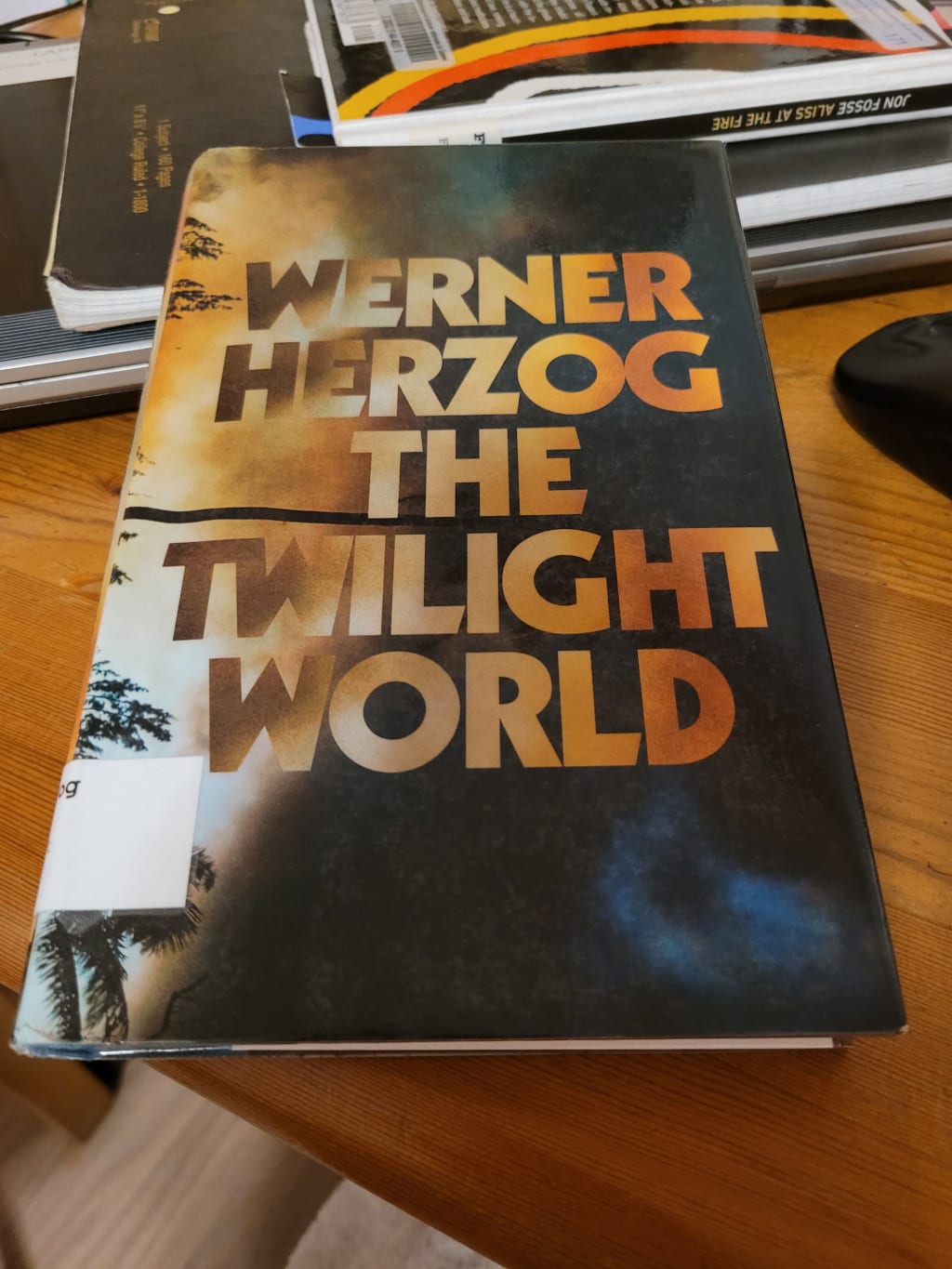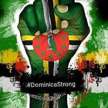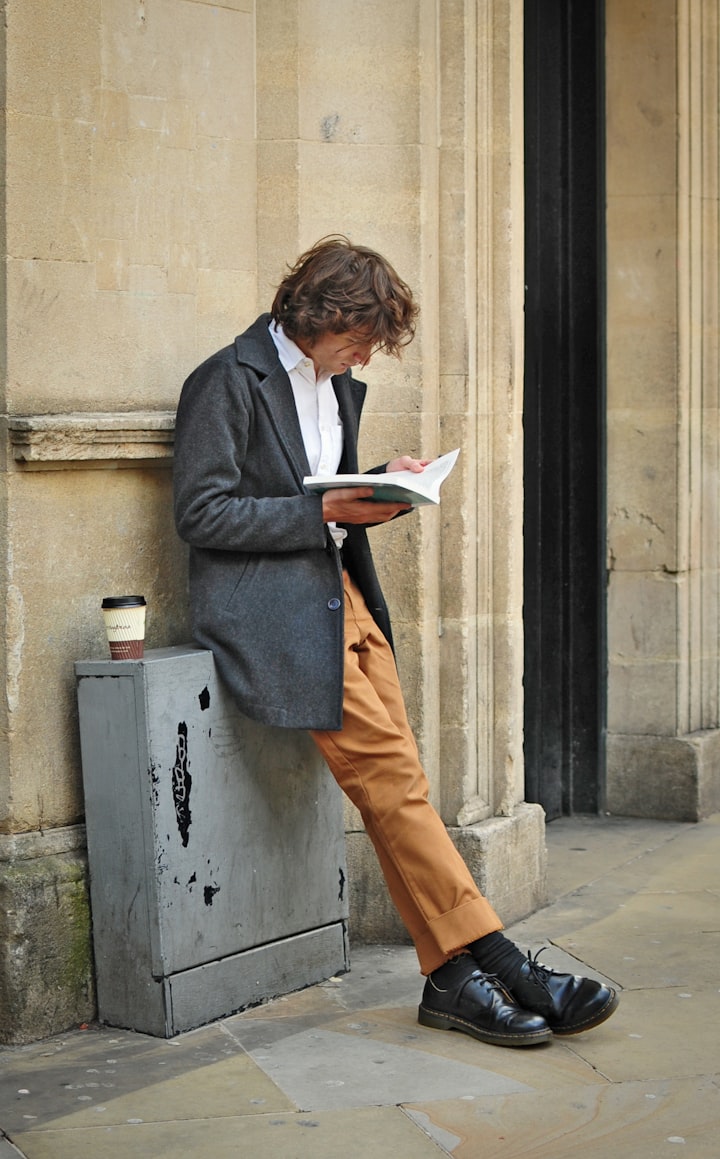Review: "The Twilight World"
Werner Herzog Explores a Lost Life

From the very first page of this narrative:
Most details are factually correct; some are not. What was important to the author was something other than accuracy, some essence he thought he glimpsed when he encountered the protagonist of this story.
This helps...
Werner Herzog is the author of Fitzcarraldo, Aguirre, the Wrath of God, Grizzly Man, and other films about the nature of man in conflict with his environment. It explains why he would be interested in the story of a man who was forgotten by his country and remained a ghost to his society.
In 1997, Herzog was invited to Tokyo to direct an opera, Chushingura, a story in which a feudal lord, provoked by an insult, draws his sword and is forced to commit suicide (seppuku). Forty-seven of his retainers kill the one who insulted their master...and then they in turn take their own lives.
It matters that the story begins with this story...and that Herzog himself would in turn commit his own faux pas. He refused to meet the Emperor after being formally invited...and chose to meet Hiroo Onoda.
Onoda's story is one many people have heard and probably only half-believe: as a Japanese soldier, he was left on an island and left totally uniformed of the end of World War Two for almost thirty years. The description I have given makes it seem like a sort of punchline to the worst type of joke, but Herzog treats the subject and the man with a respect I would expect from a man who created his particular world of film.
In the Philippines, specifically Lubang Island, Lieutenant Onoda was ordered to hold the island 'until the Imperial Army's return'. It was in December 1944. The war was turning against this particular Axis power. Hiroshima and Nagasaki were less than a year away (Hiroo would not learn of these events until he was discovered in 1974).
How would you survive and live for thirty-odd years on an island, thinking that a war was still being waged in the name of your nation if your resources were limited and you had very few outside contacts? Onoda is not always alone on the island, but this is a narrative that is completely in his head and heart. Herzog's usual genius for portraying man in his environment works as well on the page as it does on celluloid.
He describes the humidity and rot (1971):
The humidity gnaws at everything, everything rots, frays, crumbles...It rains the next day, and the next, and by the time it's dry again and sunny, they find their plastic sack pumped up like a rubber balloon about to burst.
There is some hint of another war in southeast Asia (1971):
Onoda turns (a newspaper) over, sees advertisements for electrical kitchen equipment, for cars, for lipstick. He turns back to the front-page headline: Australia and New Zealand are ending their involvement in the war. A further column: the calamitous South Vietnamese offensive in Laos.
And, in a heartbreaking moment that still moves me as I think of it, he hears something remarkable (Late 1972):
(One) day he sees some men below Looc Overlook. One of them is carrying a loudspeaker on his back like a rucksack, his face is obscured from sight as he walks down the hill. The voice calls out in Japanese: 'This is your brother, this is your brother. I am your brother Toishi.'
...
Onoda strains everything in himself to follow...
'I will sing a song now...Hiroo, my brother, do you remember the song we used to sing at cherry blossom time?'
Onoda just catches the opening bar of the song, thereafter the jungle draws the voice into itself.
And so on and so on... Now, Onoda is found and reunited with this commanding officer and the world of a Japan he does not recognize, and after years of raids on Philippine villages - he became a legend of the island - and a legend from another time.
You might wonder if you would like to spend time with such a story, but I think that Onoda's story and Herzog's writing deserves our attention and we should understand that many of us do live out of time. We do need to be brought home...
The past could always be measured and described, but his memory had blurred events... The day is ending. The sun will rise in the morning... His heart beats with their hearts (the animals of the forest). When he is with them, he knows he is where he is. The night is over...

*
Thank you for reading!
If you liked this, you can add your Insights, Comment, leave a Heart, Tip, Pledge, or Subscribe. I will appreciate any support you have shown for my work.
You can find more poems, stories, and articles by Kendall Defoe on my Vocal profile. I complain, argue, provoke and create...just like everybody else.
Give it a look...
About the Creator
Kendall Defoe
Teacher, reader, writer, dreamer... I am a college instructor who cannot stop letting his thoughts end up on the page.
And I did this: Buy Me A Coffee... And I did this:






Comments (1)
I remember hearing about this soldier time left behind. A fascinating story of survival and determination.